No products in the cart.
Return To ShopGreat Expectations!
Everyone that has fished the salt has been there…
I was on a fly fishing trip with an accomplished Captain in Laguna Madre. It was mid-April, and the weather was not going to cooperate. Captain Rick Hartman called me, saying, “It will be windy and overcast, a tough sell. Do you still want to go?” Hell, yes, I exclaimed! Before I knew it, the time had come to move to the casting deck of his Texas-made flats boat. We saw minimal action, mainly laid-up redfish spooked when we finally saw them. The conditions could have been more favorable. Captain Hartman apologized profusely all day. I assured him I was having a blast, but he felt horrible. It made me think that clients of the past perhaps needed to be more understanding in the past. People need to understand that they cannot change the weather. I have been through this many times in history. Either you can let it eat on you until you are not having fun (the real goal for fly fishing), or you can choose to see the positives in the experience. I have grown to look for these instead. Below is a guide to learning how to make the most of your experience fly fishing in the saltwater.
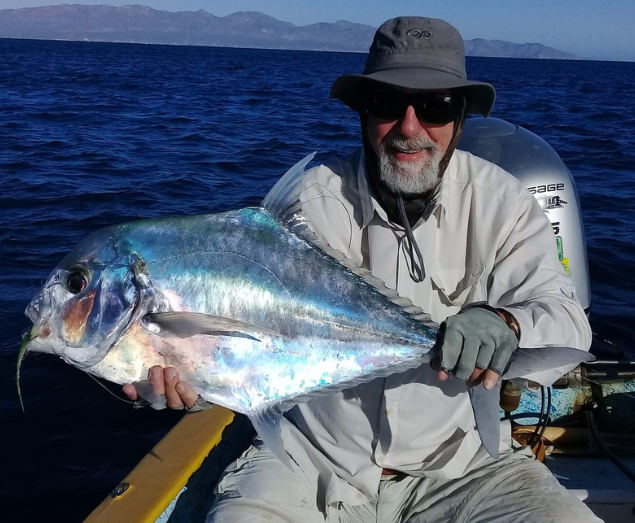
Saltwater Fly Fishing
is one of the most thrilling and challenging forms of angling. It requires a high degree of skill, patience, and persistence, as well as the right equipment and a good understanding of the target species and their behavior. However, as with any sport or hobby, it’s essential to have realistic expectations of what saltwater fly fishing can offer, both in terms of the challenges and the rewards.
This blog will explore critical factors affecting your success in saltwater fly fishing and help you set realistic goals and expectations for your next trip.
The Challenges of Saltwater Fly Fishing
Before diving into saltwater fly fishing details, it’s essential to recognize that this angling can be challenging. Unlike freshwater fly fishing, where you’re often casting to visible trout or other species, saltwater fly fishing typically involves blind casting into areas where you hope fish will feed or cruise or sight casting with precision. This means you need to understand your target species’ habitat and feeding habits and be able to read the water and spot potential feeding zones.
In addition, saltwater fly fishing often requires longer casts and heavier gear than freshwater fly fishing. You may need to use a heavier-weight rod and line and larger and heavier flies to handle the larger and more powerful fish found in saltwater environments. It can take some getting used to, especially if you’re used to casting lighter gear in freshwater.
Finally, saltwater fly fishing can be physically demanding, particularly if you’re wading in deep water or dealing with strong currents or wind. You’ll need to be in good physical shape and able to handle the rigors of casting, stripping, and fighting fish for extended periods.
Setting Realistic Goals for Saltwater Fly Fishing
Given the challenges of saltwater fly fishing, setting realistic goals for your trips is essential. Here are some key factors to consider when developing your expectations:
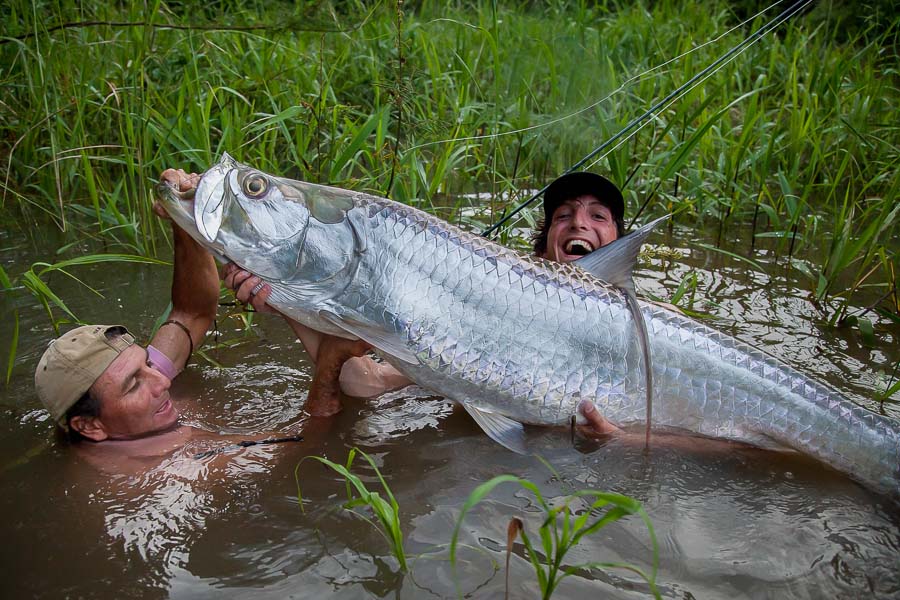
The SUPER-STOKER!!!
Ask about our Costa Rica Jungle Tarpon Trip in September….
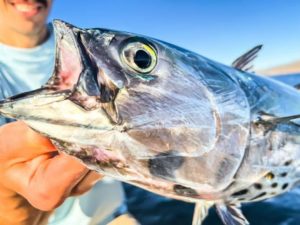
Target Species:
The type of fish you’re targeting can significantly impact your success and the level of challenge involved. Some species, such as bonefish or redfish, are known for being particularly challenging to catch on the fly, while others, such as tarpon or sailfish, require a high degree of skill and experience to hook and land. Be realistic about your ability level and the difficulty of your target species.

Location:
The location you choose for your saltwater fly fishing trip can also greatly impact your success. Some areas are known for having high concentrations of certain species, while others may have more challenging conditions or less predictable fishing. Research your destination thoroughly and talk to local guides or other anglers to understand what to expect.

Season:
The time of year you go saltwater fly fishing can also affect your success. Some species may be more active or accessible during certain months, while others may be more difficult to find or catch. Research the best times of year for your target species and plan your trip accordingly.

Skill Level:
Finally, be realistic about your skill level and experience with saltwater fly fishing. If you’re new to the sport or haven’t fished in saltwater before, getting comfortable with the gear, casting, and other techniques may take some time. Set realistic goals based on your current ability level, and focus on improving your skills over time.
Tips for Success in Saltwater Fly Fishing
While saltwater fly fishing can be challenging, several tips and techniques can help you improve your odds of success. Here are a few key strategies to consider:
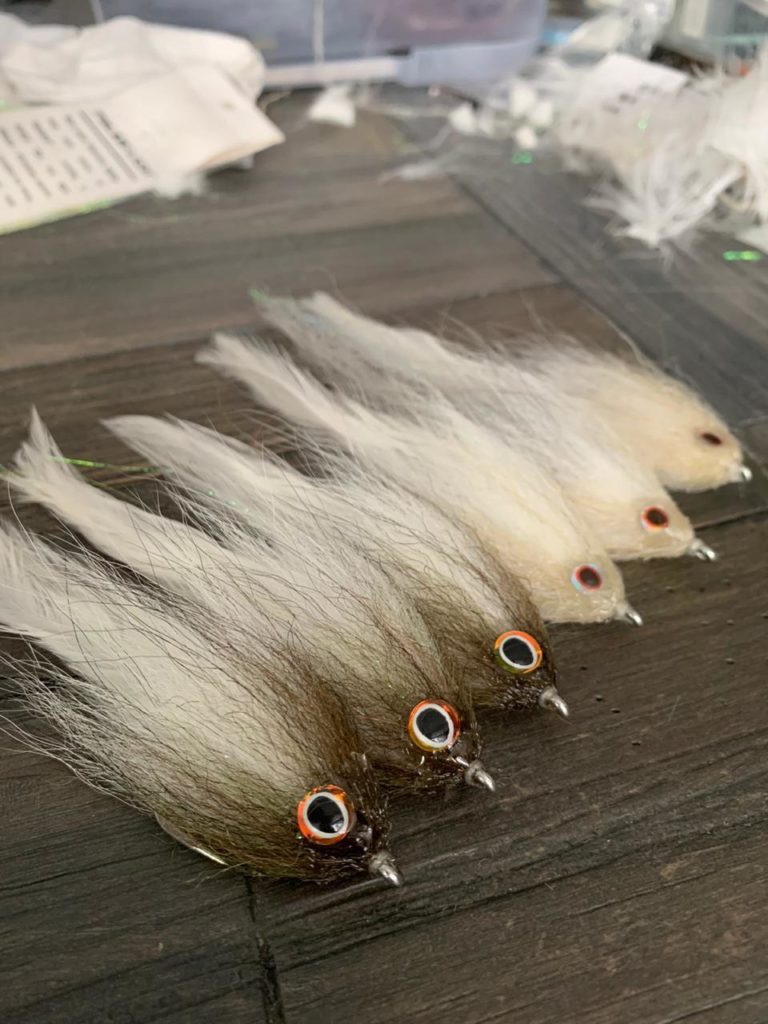
Use the right gear!
Saltwater fly fishing typically requires heavier gear than freshwater fly fishing. Ensure you have a rod, reel, and line appropriate for the species you’re targeting and the conditions you’ll be fishing in. Talk to a knowledgeable salesperson or local guide for advice on the right equipment for your needs.
- plenty of time on the water. If you expect to show up, fish for one day, and be able to catch your targeted species, it may work out, but more often than not, it will not. So many variables in the salt change fish behavior that you need more time.
- Practice casting: Casting is a crucial skill in saltwater fly fishing, and it’s essential to make accurate and long casts in various conditions. Take an online course to learn to be more skillful, take the time to practice your casting before your trip, and consider grabbing a lesson or two from a professional casting instructor to improve your technique.
- Learn to read the water: Spotting potential feeding zones and areas where fish are likely cruising is a key skill in saltwater fly fishing. Spend time observing the water and learning to recognize different habitats and structures that may hold fish.
- Use the right flies: Matching the hatch is vital in freshwater fly fishing but even more crucial in saltwater fly fishing. Make sure you have a good selection of flies that mimic the types of prey your target species are feeding on, and be willing to switch flies often if you’re not getting bites.
- Be patient: Saltwater fly fishing can sometimes be frustrating, and it’s essential to be patient and persistent. Keep casting and searching for fish, even if you need to get bites immediately. Remember, success in saltwater fly fishing often comes down to persistence and determination.
- Hire a guide: If you’re new to saltwater fly fishing or unfamiliar with the area you’ll be fishing in, consider hiring a local guide. A good guide can help you navigate the challenges of saltwater fly fishing, show you where to find fish and provide valuable tips and advice on technique and equipment.
The Rewards Of Saltwater Fly Fishing:
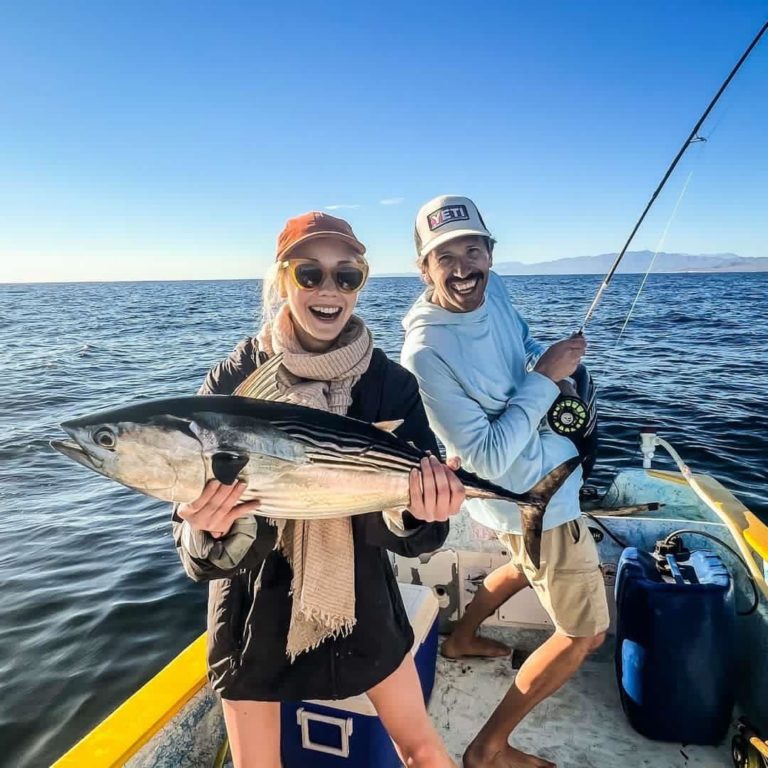
While saltwater fly fishing can be challenging, it’s also gratifying. There’s nothing quite like the thrill of hooking and landing a big fish on the fly, especially in the beautiful and often remote environments where saltwater fly fishing occurs.
In addition to the thrill of the catch, saltwater fly fishing also offers a chance to explore some of the world’s most beautiful and remote coastal regions. From the flats of the Bahamas to the mangrove-lined bays of Belize to the beaches of Baja, saltwater fly fishing can take you to some truly spectacular places.
Finally, saltwater fly fishing offers a chance to connect with nature and the rhythms of the tides and the seasons. Whether you’re wading a remote flat in search of bonefish or stalking tarpon in the shadow of a towering mangrove, saltwater fly fishing is an immersive and deeply rewarding experience that can leave a lasting impression on those who pursue it.
In conclusion, saltwater fly fishing can be gratifying and challenging. By setting realistic goals, learning fundamental techniques, and persevering through the challenges, you can improve your odds of success and experience the thrill of landing big fish on the fly. Whether you’re a seasoned angler or just starting, saltwater fly fishing is a pursuit that offers a lifetime of learning, adventure, and discovery. Stay safe out there, and as always, Stay Salty Amigos!
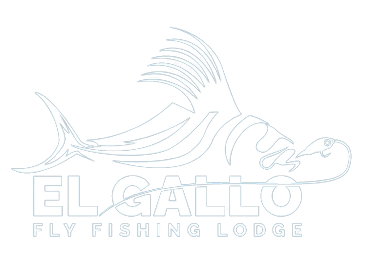
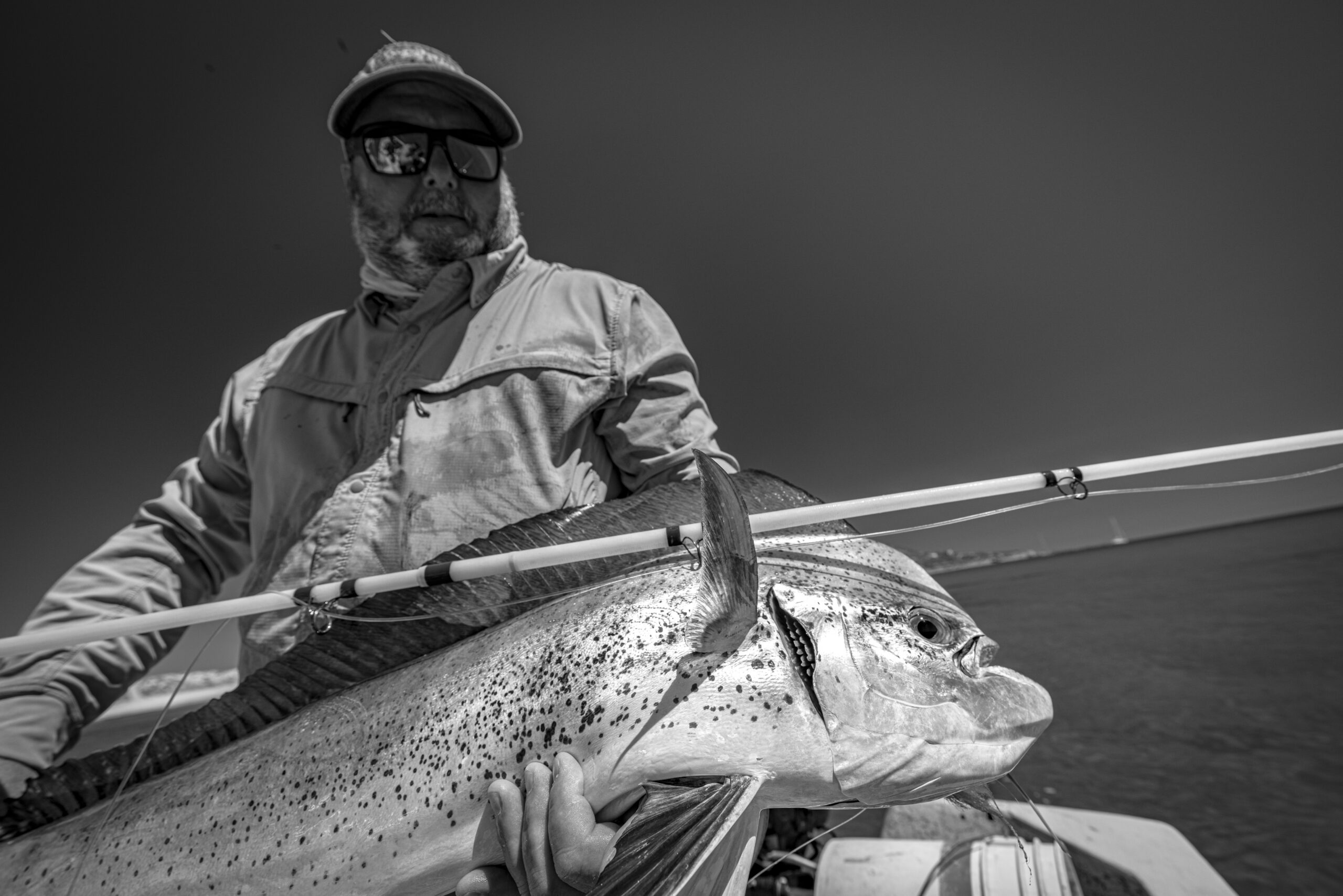
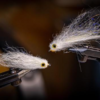
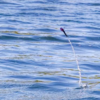
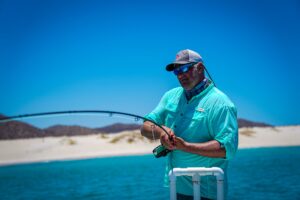


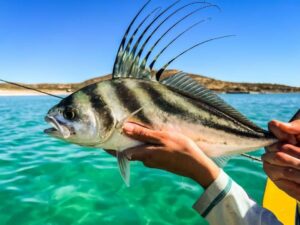
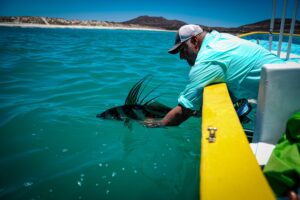
Leave a reply